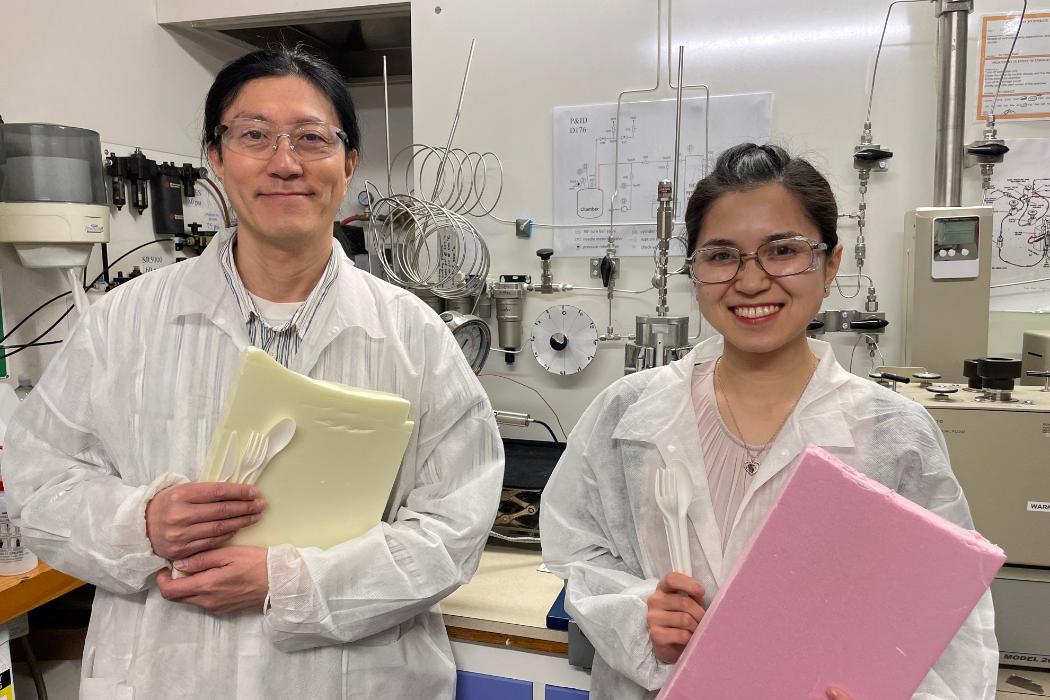Biodegradable plastics are supposed to be good for the environment. But, rather paradoxically, because they are designed to degrade quickly, they can’t be recycled.
Offering a potential solution and a way of recycling the material, New Zealand researchers have found that compostable plastic can be turned into a foam that functions as building insulation.
University of Canterbury academic Dr Heon Park – along with co-authors Chemical and Process Engineering PhD student Lilian Lin and BE(Hons) graduate Young Lee – have developed a method to convert single-use plastic knives, spoons and forks into a foam that can be turned into insulation for walls or flotation devices. This cutlery is made from PLA.
An explanation of polylactic acid
Polylactic acid (PLA) is a plastic made of fermented starch from corn or sugar cane. It is designed to break down harmlessly, but if PLA enters the environment it doesn’t always break down as intended.
Dr Park studies biodegradable foams and the synthesis and processing of biodegradable plastics as part of his many fields of research.
How did the NZ researchers do it?
The researchers placed the cutlery, which was previously thought to be ‘non-foamable’ plastic, into a chamber filled with carbon dioxide. As pressure increased, the gas dissolved into the plastic. When they suddenly released the pressure in the chamber, the carbon dioxide expanded within the plastic, creating foaming.
Dr Park says the process is like opening a can of soda and releasing the carbonation.
“By tweaking the temperature and pressure, there is a window where we can make good foams,” he says. “It’s not that every temperature or every pressure works. We found what temperature [and] pressure is the best to make those non-foamable plastics into foams.”
Each time plastic is recycled, it loses a bit of strength. Foams are an ideal material because strength is not important in many applications.
“Whenever we recycle, we degrade the plastics each time,” explains Park. “Let’s say we have a biodegradable spoon. If we use it and we recycle it back into another spoon, it may break in your mouth.”
Alleviate global pollution problems
The ideal structure of a foam depends on its final use. Bulky foams, which have large or plentiful air pockets, are good for buoys. The researchers found, contrary to what was previously thought, lower chamber pressures led to bulky foams.
Making biodegradable plastics recyclable could alleviate some of the global pollution issue. While biodegradable material eventually breaks down in nature, it is even better for the environment if plastics can be repurposed.
Biodegradable and recyclable plastics can be used more than once, but are also less of an environmental threat if they end up in oceans or landfills. The team believes this process could be implemented on a large scale.
“We can expand foaming applications to a lot of plastics, not just this plastic,” says Dr Park.












